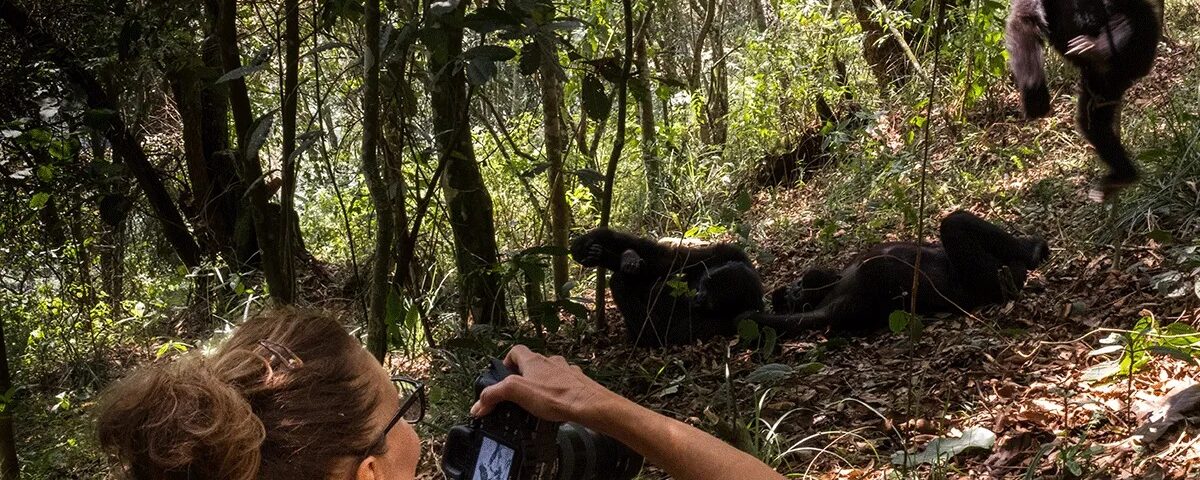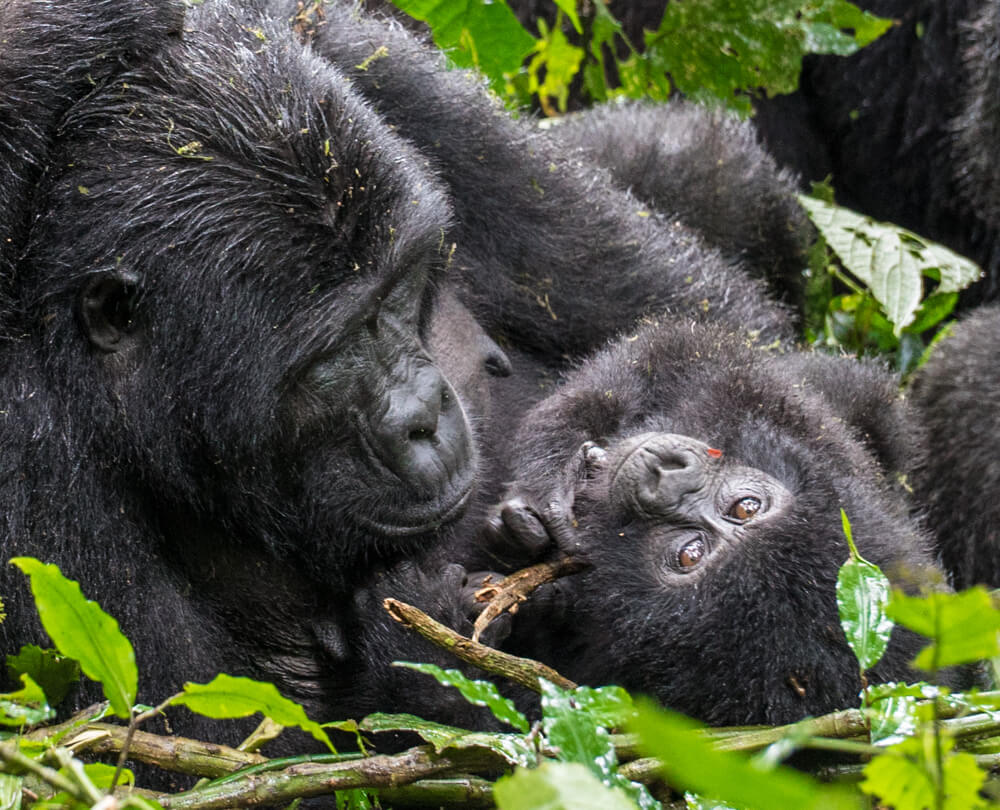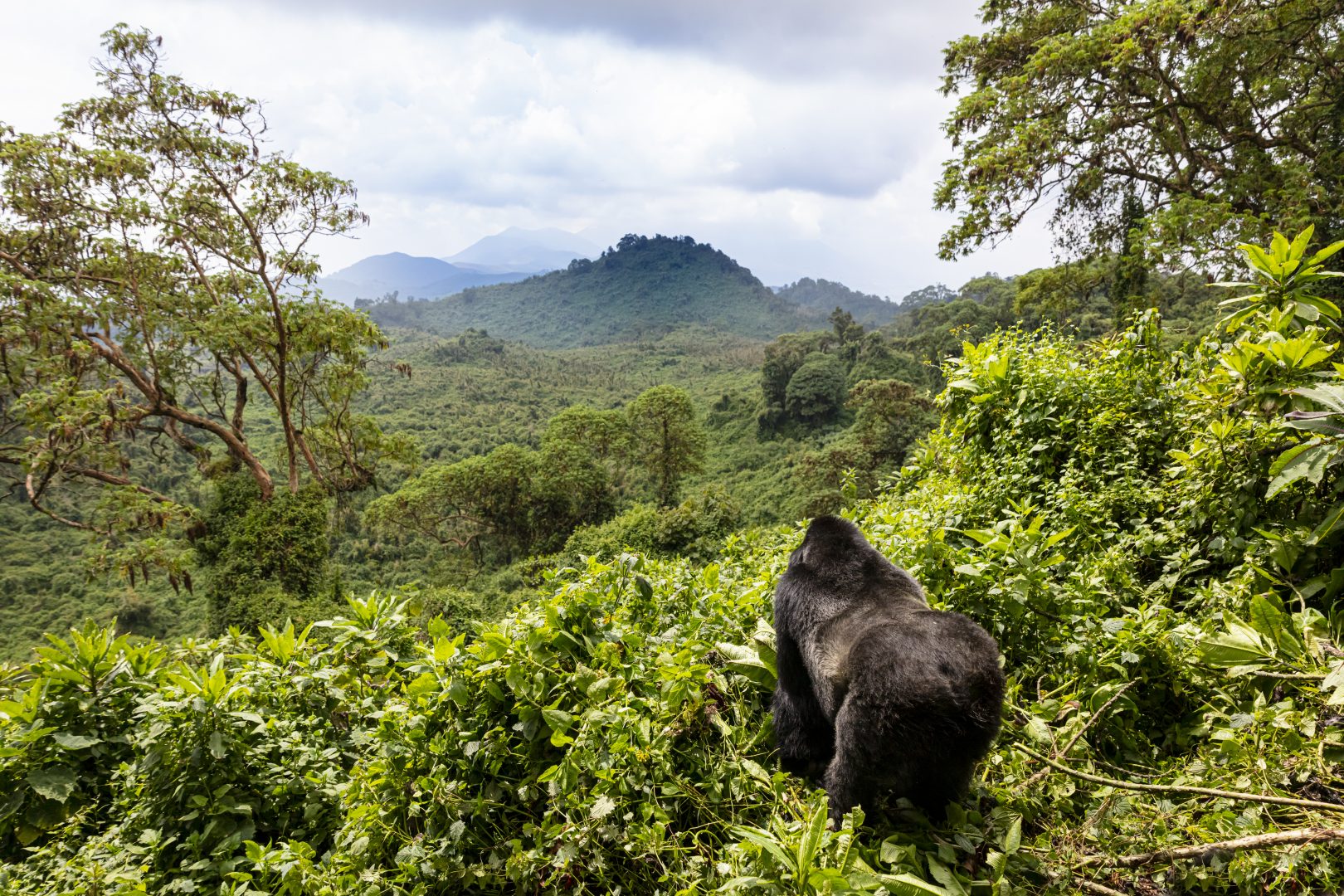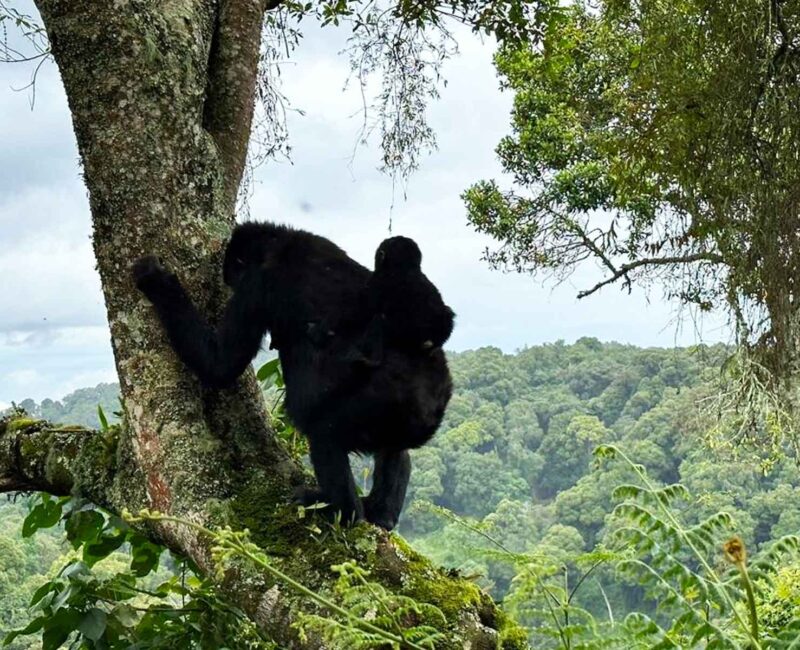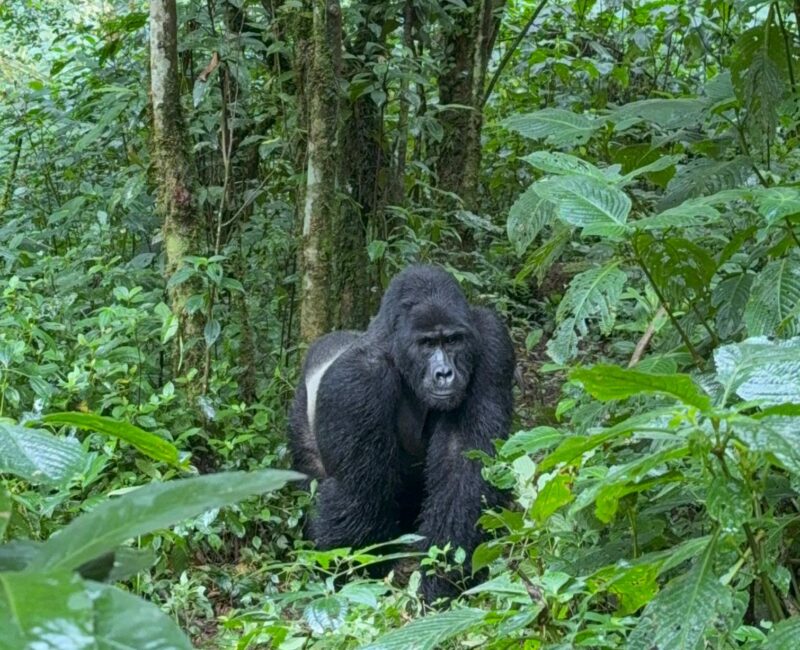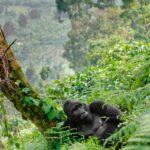
Gorilla Families in Rushaga Sector of Bwindi
September 17, 2025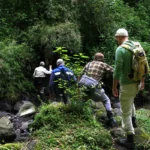
Best Family Gorilla Trekking in Uganda
September 18, 2025Solo Gorilla Trekking Uganda – The Ultimate Guide for Independent Travelers
Solo Gorilla Trekking in Uganda is one of the most rewarding adventures any traveler can undertake. Uganda, known as the “Pearl of Africa,” offers unmatched encounters with mountain gorillas in Bwindi Impenetrable National Park and Mgahinga Gorilla National Park. While many travelers join group safaris, solo explorers increasingly seek personal freedom, independence and deeper connections with both wildlife and culture.
Trekking mountain gorillas alone may sound intimidating but Uganda makes it safe, feasible and memorable. The Uganda Wildlife Authority (UWA) maintains strict security measures ensuring every trekker is accompanied by trained guides and armed rangers. Solo Gorilla Trekking therefore combines independence with structure, allowing travelers to explore at their pace while enjoying professional guidance.
But what makes Solo Gorilla Trekking Uganda truly stand out? The answer lies in combining wildlife, cultural experiences, and tailored Uganda Safaris Holidays that focus on personal preferences. This guide dives into every essential detail: safety, permits, costs, best seasons, accommodation, transport, cultural highlights, and tips for making your solo journey unforgettable.
Is Solo Gorilla Trekking Safe for Independent Travelers
Many first-time visitors ask whether Solo Gorilla Trekking in Uganda is safe. Uganda has earned a strong reputation as a welcoming and secure destination, particularly in its protected areas. The Uganda Wildlife Authority prioritizes safety by assigning every trekker armed rangers and trained guides. These professionals escort tourists throughout the trek, ensuring protection against potential risks such as wild animals or unexpected terrain challenges.
Travelers trekking alone never feel isolated because gorilla tracking is organized in groups of up to eight people per gorilla family. This means solo adventurers join other international travelers, creating instant companionship while still enjoying independence. Uganda’s parks, particularly Bwindi and Mgahinga, are well-regulated and structured, making them ideal for solo exploration.
Therefore, Solo Gorilla Trekking balances freedom with reassurance. Independent explorers enjoy the comfort of knowing they are safe while still experiencing adventure on their own terms.
Permits that Are Required for Solo Gorilla Trekking in Uganda
The gorilla permit is the most important requirement for anyone planning Solo Gorilla Trekking Uganda. This permit, issued by the Uganda Wildlife Authority, grants access to spend one hour observing a habituated gorilla family.
Foreign non-residents currently pay $800 per permit, foreign residents pay $700, while East African citizens pay 300,000 UGX. Solo travelers must book their permits in advance, preferably through a registered tour operator, as slots are limited. Each gorilla family allows only eight visitors daily, making demand extremely high during peak seasons.
Booking through a trusted operator simplifies logistics, combining the permit with accommodation, transport, and guidance. Solo Gorilla Trekking Uganda therefore requires careful advance planning to secure a permit and ensure a smooth itinerary. Without a permit, trekking is impossible, so this becomes the single most crucial step in preparing for your adventure.
When Is the Best Time for Solo Gorilla Trekking
Weather plays a major role in determining the best time for Solo Gorilla Trekking Uganda. Uganda enjoys two dry seasons—June to September and December to February which are widely considered ideal for trekking. During these months, trails are less muddy, visibility is clearer, and gorilla tracking is more comfortable.
However, the wet seasons, March to May and October to November, also offer unique advantages. Fewer visitors mean more availability of permits, reduced lodge rates, and quieter trails. Additionally, lush vegetation attracts birds and primates, enhancing the Uganda Wildlife Safari experience.
Solo adventurers must weigh comfort against budget. If the goal is ease of trekking, dry months are best. If affordability and solitude matter more, rainy months provide excellent opportunities. Solo Gorilla Trekking Uganda is therefore rewarding year-round, depending on personal travel style and flexibility.
How Solo Travelers Can Plan Transport and Accommodation in Uganda
One of the biggest questions surrounding Solo Gorilla Trekking Uganda involves logistics. Unlike group travelers who share costs, solo tourists must carefully budget for private transport and lodging.
Accommodation around Bwindi and Mgahinga ranges from budget guesthouses to luxury safari lodges. Budget-conscious solo travelers can choose community-owned lodges or mid-range stays, while luxury seekers enjoy exclusive eco-lodges offering personalized services. Booking early ensures availability, especially during high demand dry seasons.
Transport options include hiring a private car with a driver, arranging transfers through lodges, or joining scheduled tours for shared costs. Solo Gorilla Trekking Uganda also allows travelers to combine trekking with other Uganda Safaris, such as Queen Elizabeth National Park for tree climbing lions or Kibale for chimpanzees. This flexibility makes solo travel rewarding, even if costs may be slightly higher compared to group safaris.
Cultural Experiences That Complement Solo Gorilla Trekking
One of the most enriching aspects of Solo Gorilla Trekking lies in the cultural activities around trekking lodges. Bwindi’s Buhoma, Ruhija, Nkuringo, and Rushaga sectors all offer unique encounters with local communities.
The Batwa cultural experience, for example, allows solo travelers to meet the indigenous Batwa people, who once lived in the forest. Storytelling, traditional dances, and demonstrations of hunting and gathering skills provide deeper context to the trekking experience. Craft centers and village walks around Buhoma and Nkuringo allow visitors to support community projects while learning about Ugandan traditions.
Solo adventurers often find cultural activities especially rewarding because they provide human connection in a personal way. Unlike large groups, individuals can engage deeply, ask questions, and develop meaningful exchanges. Solo Gorilla Trekking Uganda therefore becomes more than wildlife it transforms into a cultural journey highlighting Uganda’s heritage.
How Physically Demanding Solo Gorilla Trekking Is
Another common concern is the physical challenge of Solo Gorilla Trekking. Treks can last between two and six hours, depending on the gorilla family’s location. Bwindi is known for steep terrain, thick vegetation, and humid conditions, making some hikes demanding.
Solo travelers should prepare with moderate fitness training before arrival. Good hiking boots, waterproof jackets, gloves, walking sticks, and plenty of water are essential. Local porters, available at a small fee, help carry backpacks and provide support on difficult trails. Hiring a porter not only eases the trek but also supports local livelihoods, making it a highly recommended option.
Solo Gorilla Trekking Uganda requires determination, but the reward of standing just meters away from a silverback gorilla outweighs every challenge. With preparation and resilience, solo adventurers find the experience deeply transformative.
Other Uganda Safaris Solo Travelers Can Combine with Gorilla Trekking
Solo Gorilla Trekking Uganda need not be limited to gorilla encounters. Many travelers extend their journey with Uganda Wildlife Safaris that showcase the country’s diverse attractions.
Queen Elizabeth National Park offers game drives featuring elephants, hippos, and the rare tree-climbing lions of Ishasha. Kibale National Park provides chimpanzee trekking, while Murchison Falls presents dramatic waterfalls and boat safaris on the Nile. Lake Bunyonyi, near Bwindi, gives solo travelers a chance to unwind in one of Africa’s most scenic lakes.
Combining gorilla trekking with these destinations creates a well-rounded Uganda Safari Holiday. Solo travelers can craft flexible itineraries tailored to personal interests, whether focused on primates, wildlife, or cultural immersion. Solo Gorilla Trekking Uganda therefore acts as the centerpiece of a broader exploration of Uganda’s wonders.
Why Choose Solo Gorilla Trekking with a Tour Operator
While independence is appealing, most solo travelers benefit from booking through trusted tour operators. Operators assist in securing gorilla permits, arranging transfers, booking accommodation, and providing knowledgeable guides.
This support reduces stress and allows travelers to focus on the experience rather than logistics. Operators also offer cost-sharing opportunities by connecting solo travelers with others, lowering transport expenses.
Therefore, Solo Gorilla Trekking with a reputable operator combines freedom with convenience. Independent travelers still maintain control of their schedules while enjoying professional expertise and smoother organization, resulting in a richer and worry free adventure.
Making Solo Gorilla Trekking an Unforgettable Journey
Solo Gorilla Trekking is not only possible but also one of the most empowering and memorable journeys a traveler can undertake. From securing a gorilla permit to choosing the best season, arranging accommodation, and exploring cultural encounters, solo adventurers find themselves immersed in experiences that go beyond traditional safaris.
The combination of personal freedom, close encounters with mountain gorillas and deep cultural connections ensures that every solo traveler leaves Uganda with lifelong memories. Whether trekking in Bwindi or Mgahinga, joining cultural walks, or extending into other Uganda Safaris, the journey reflects the perfect balance between adventure and personal discovery.
Ultimately, Solo Gorilla Trekking is more than an activity, it is a transformative safari holiday that establishes Uganda as one of the world’s premier destinations for independent explorers seeking wildlife, culture, and adventure.

